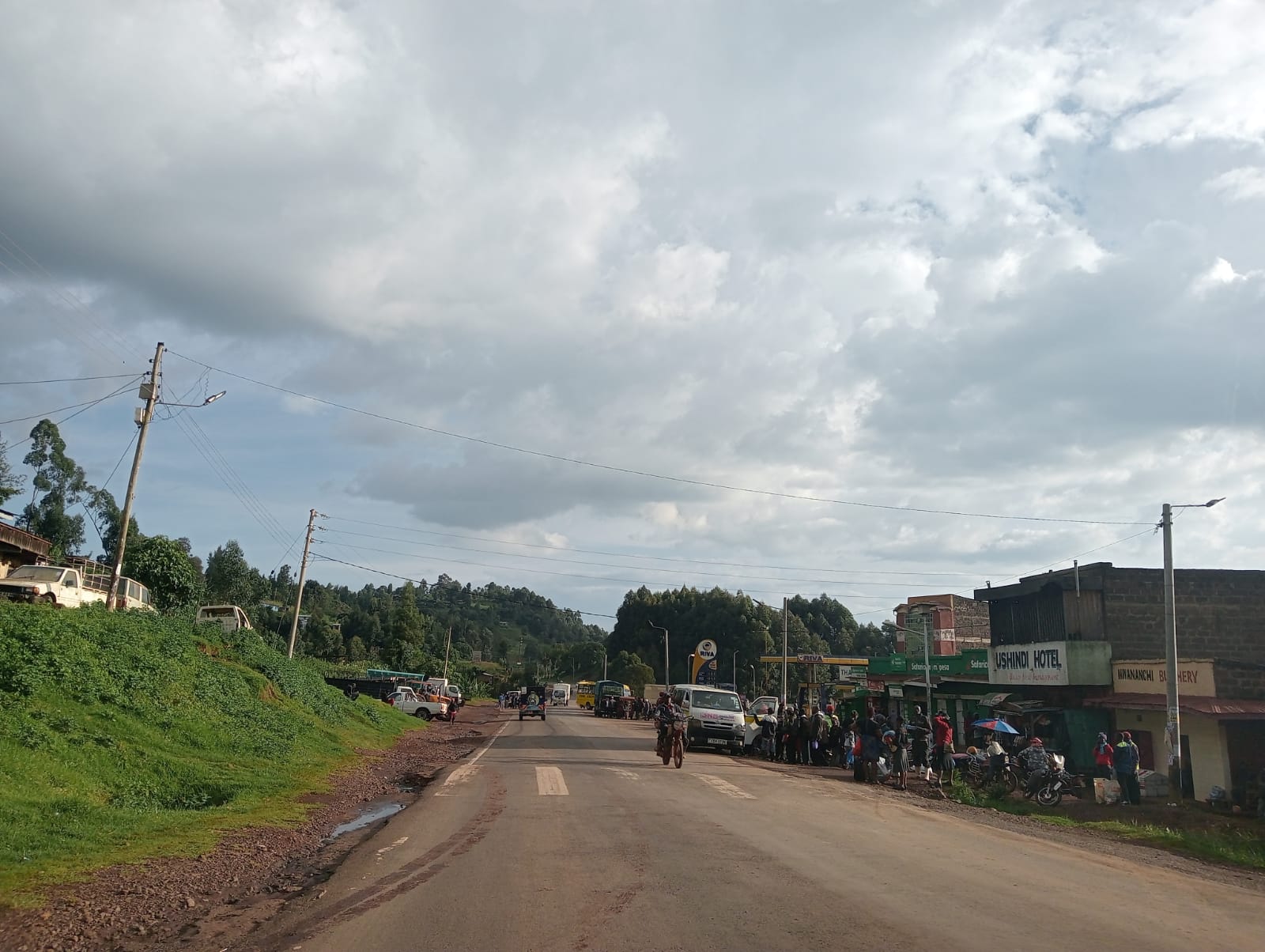Kabazi is a small but vibrant town located in Nakuru County, Kenya. Nestled in the heart of the Rift Valley, Kabazi is renowned for its agricultural productivity, scenic landscapes, and growing infrastructure. The town plays a significant role in the economic activities of Nakuru County, one of Kenya’s fastest-developing regions.
Table of Contents
Kabazi, Nakuru County Geographical Location
Kabazi is situated along the Solai–Nyahururu Road, approximately 30 kilometers north of Nakuru town. It lies within Subukia Sub-county, neighboring towns like Subukia and Bahati. Its strategic location gives it access to both rural and urban markets, making it a hub for agricultural trade and a transit point for travelers heading toward Nyahururu, Nakuru, and beyond.
How to get to Kabazi from Nakuru Town
To get to Kabazi from Nakuru Town, you have a few convenient options:
1. By Taxi
- Service: Seniors Taxi Services
- Contact: +254 111 888711
- Description: You can book a taxi with Seniors Taxi Services for a comfortable and direct journey to Kabazi. The taxi will take you directly to your destination without the need for transfers.
2. By Matatu
- Matatu Options:
- 3NS: This matatu heads towards Kabazi and is a popular choice among locals.
- NASU: Another reliable matatu service that travels to Kabazi.
- 4NTE: While primarily traveling to Nyahururu, this matatu can also drop you off at a convenient point from where you can catch a local means of transport to Kabazi.
Travel Directions:
- Taxi: Contact Seniors Taxi Services and arrange for pickup.
- Matatu Stage: Look for the matatus with the aforementioned routes (3NS or NASU) at the matatu stage.
Whether you choose a taxi for a direct and comfortable ride or a matatu for a more economical option, both methods offer reliable ways to reach Kabazi from Nakuru Town.
History and Background
Kabazi’s history is closely linked to Kenya’s agricultural development. It was initially a settlement area for farmers, who were attracted by its fertile soil and suitable climate for crop cultivation. Over the years, it has evolved from a small rural town into a commercial and agricultural center.
The name “Kabazi” is derived from local dialects, but the exact origins remain unclear. Nevertheless, it symbolizes the town’s cultural heritage and longstanding agricultural traditions.
Economic Activities
The backbone of Kabazi’s economy is agriculture. The fertile soils and favorable weather conditions make it ideal for farming various crops and livestock. Key agricultural products include:
- Dairy farming: Kabazi has a high number of dairy farmers who contribute to the local milk industry.
- Maize and other cereals: Due to its high altitude, the region is ideal for growing maize, which is a staple food for many households.
- Vegetable farming: Cabbages, carrots, and potatoes are common vegetables produced in the area, often sold in nearby towns and markets.
- Horticulture: In recent years, flower farming has been growing as a significant economic activity, with some farms exporting their produce internationally.
Beyond agriculture, Kabazi is home to small businesses and traders who engage in the retail and wholesale of farm inputs, household goods, and construction materials. Its proximity to major highways enables the transportation of goods to larger markets, including Nakuru, Eldoret, and Nairobi.
Social and Cultural Life
Kabazi is a melting pot of diverse communities, primarily Kikuyu, Kalenjin, and a small number of settlers from other ethnic groups. This diversity contributes to the town’s rich cultural traditions and practices. The residents often celebrate cultural events, such as harvest festivals and communal gatherings, which strengthen community ties.
Religion also plays a central role in Kabazi’s social life, with Christian denominations like Catholic, Anglican, and Evangelical churches being predominant in the area. These churches are not only places of worship but also social hubs where residents gather for various community-based initiatives.
Schools in Kabazi, Nakuru County
| School Name | Type | Description |
|---|
| Kabazi Primary School | Public Primary | Offers basic education from Grade 1 to 8. Government-funded, serving the local community. |
| Kabazi Secondary School | Public Secondary | Provides education from Form 1 to Form 4. Focuses on academic excellence and co-curricular activities. |
| St. Teresa’s Kabazi Girls Secondary School | Public Secondary (Girls) | Reputable girls’ secondary school emphasizing academics and leadership skills. |
| Kabazi Day Secondary School | Public Day School | Offers education from Form 1 to Form 4. Allows students to stay in the local area. |
| Kabazi Baptist Academy | Private School | Faith-based institution providing primary and secondary education. Focuses on academic and moral development. |
| Kabazi Vision Academy | Private School | Offers nursery and primary education with a focus on individualized attention and modern facilities. |
| Little Lambs Academy | Private School | Provides early childhood and primary education. Known for nurturing young learners. |
| St. Peter’s Kabazi Academy | Private School | Focuses on discipline, academic performance, and extracurricular activities. |
Tourism and Attractions
While Kabazi may not be a major tourist destination, it has several natural and cultural attractions. The nearby Subukia Valley is a scenic area with stunning views of the Rift Valley, and it is popular for hikes and nature walks. Visitors interested in agricultural tourism can visit the local farms to learn about dairy farming, horticulture, and cereal production.
The Kabazi Dam, located just a few kilometers from the town, provides water for irrigation and fishing. It’s a beautiful location for picnics and birdwatching, attracting both locals and tourists from nearby towns.
Challenges Facing Kabazi
Despite its growth, Kabazi faces several challenges that need to be addressed for sustainable development:
- Infrastructure: Although roads have improved, some rural areas still suffer from poor access to basic infrastructure like electricity, water, and internet connectivity.
- Education facilities: Schools are available, but there is a need for more advanced learning institutions and vocational training centers to equip the youth with skills for modern economic activities.
- Healthcare services: Access to healthcare is limited, and residents often have to travel to Nakuru town for specialized medical treatment. There is a need for more healthcare facilities to address the increasing population.
- Climate change: Like many agricultural towns, Kabazi is vulnerable to climate change. Unpredictable weather patterns, such as prolonged droughts and erratic rainfall, can affect crop yields and food security.
Future Prospects
Kabazi’s future looks promising due to ongoing infrastructure projects and economic development in Nakuru County. The expansion of road networks, increased access to electricity, and investment in agribusiness could propel Kabazi into becoming a larger commercial center. The Kenyan government’s focus on rural development and agriculture also provides opportunities for growth in the agricultural and industrial sectors.

